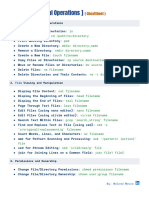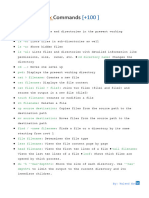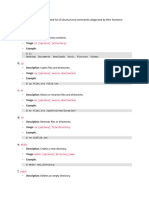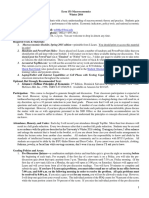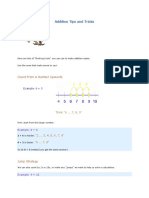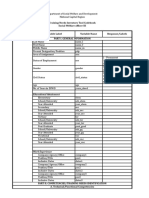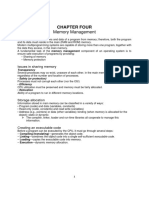0% found this document useful (0 votes)
38 views3 pagesLinux Commands Cheat Sheet
This document is a cheat sheet for Linux commands, covering various categories such as file and directory management, file permissions, process monitoring, user management, networking, package management, searching, text processing, archiving, and system control. Each command is accompanied by a brief description of its function. It serves as a quick reference for users to efficiently navigate and manage Linux systems.
Uploaded by
BASaiTejaCopyright
© © All Rights Reserved
We take content rights seriously. If you suspect this is your content, claim it here.
Available Formats
Download as DOCX, PDF, TXT or read online on Scribd
0% found this document useful (0 votes)
38 views3 pagesLinux Commands Cheat Sheet
This document is a cheat sheet for Linux commands, covering various categories such as file and directory management, file permissions, process monitoring, user management, networking, package management, searching, text processing, archiving, and system control. Each command is accompanied by a brief description of its function. It serves as a quick reference for users to efficiently navigate and manage Linux systems.
Uploaded by
BASaiTejaCopyright
© © All Rights Reserved
We take content rights seriously. If you suspect this is your content, claim it here.
Available Formats
Download as DOCX, PDF, TXT or read online on Scribd
/ 3
